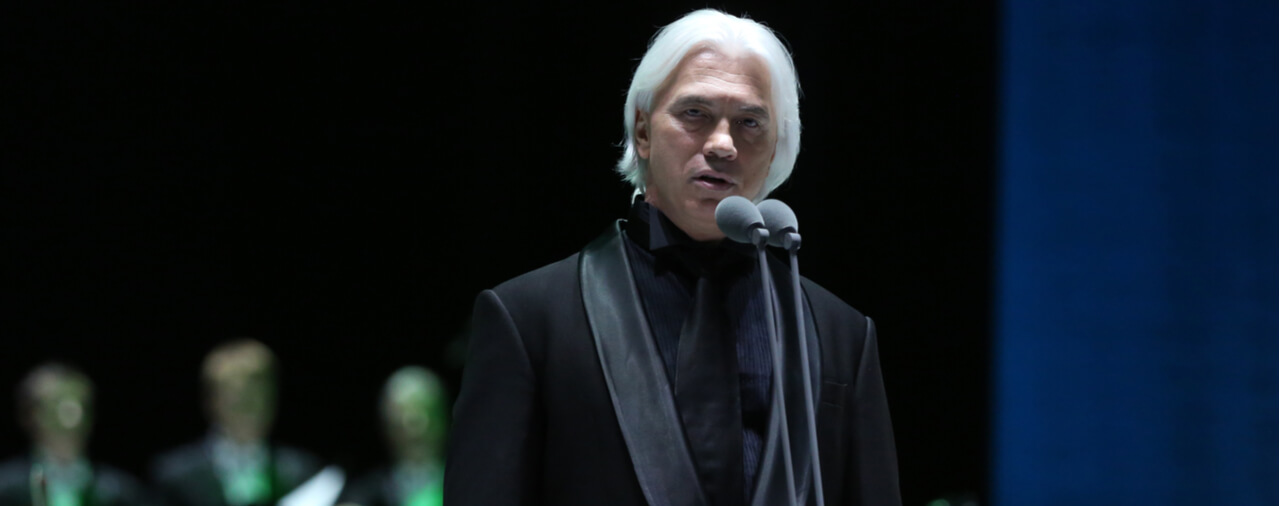Today, I would like to take a short aside from blogging about immigration law and politics to address the tragic death of the great Siberian baritone, Dmitri Hvorostovsky. He passed away at the young age of 55 after a two-year battle with brain cancer, leaving behind his wife and four children.
Hvorostovsky was beloved by audiences worldwide throughout his remarkable career. A poignant obituary by Anthony Tommasini noted that Hvorostovsky’s peers in the opera had great admiration for his talents as well [link].1 For example, the obituary quotes American soprano Renée Fleming as stating that while there “have been many beautiful voices” in opera, there have been “none more beautiful than Dmitri’s.”
The Associated Press (AP) quoted tenor Placido Domingo on Hvorostovsky’s passing: “Dmitri’s incomparably beautiful voice and peerless artistry touched the souls of millions of music lovers. His passing will be mourned by countless admirers around the world and by those of us who were fortunate to know him” [link].2
Hvorostovsky was not only admired for his transcendent talent on the stage, but also for the courage with which he lived during his illness. The AP quoted the Vienna State Opera Director, Dominique Meyer: “I especially admire the wonder way in which he carried himself during his terrible illness.”
Hvorostovsky is my favorite performer, and like millions of his admirers worldwide, I will miss him dearly. For those who are not familiar with his work, I encourage you to take this opportunity to watch his performances and see why he was loved and admired by so many. You may begin by watching just a tiny sample of his work below:
Hvorostovsky making a surprise appearance at the Metropolitan Opera Gala in May 2017, performing “Cortigiani, vil razza dannata” from Verdi’s “Rigoletto.”
A tribute to Hvorostovsky posted by the Metropolitan Opera.
Hvorostovsky singing Valentin’s aria from act II of Gonud’s opera Faust, courtesy of the Royal Opera House.
Hvorostovsky performing the final scene from Tchaikovsky’s “Eugene Onegin” at the Metropolitan Opera.
Finally, the following is a two part interview in English with Hvorostovsky from 2012 on Classic Talk with Bing & Dennis, posted by the show’s YouTube page:
Hvorostovsky will be sorely missed by his friends and family, the operatic community, and the millions of us worldwide who admired his performances. His work will live on for a long time to come.





